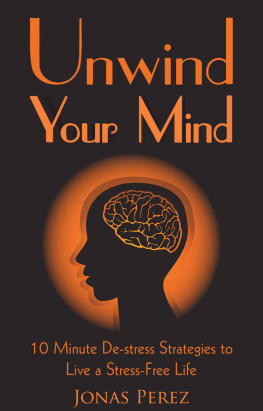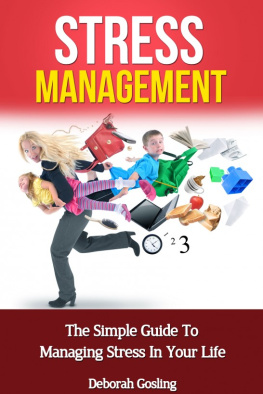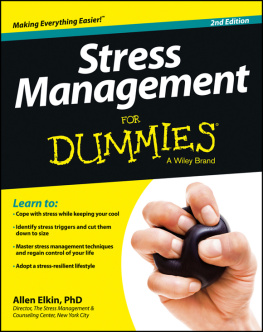Edward A. Charlesworth PhD - Stress Management: a Comprehensive Guide to Wellness
Here you can read online Edward A. Charlesworth PhD - Stress Management: a Comprehensive Guide to Wellness full text of the book (entire story) in english for free. Download pdf and epub, get meaning, cover and reviews about this ebook. year: 2012, publisher: BookBaby, genre: Religion. Description of the work, (preface) as well as reviews are available. Best literature library LitArk.com created for fans of good reading and offers a wide selection of genres:
Romance novel
Science fiction
Adventure
Detective
Science
History
Home and family
Prose
Art
Politics
Computer
Non-fiction
Religion
Business
Children
Humor
Choose a favorite category and find really read worthwhile books. Enjoy immersion in the world of imagination, feel the emotions of the characters or learn something new for yourself, make an fascinating discovery.
- Book:Stress Management: a Comprehensive Guide to Wellness
- Author:
- Publisher:BookBaby
- Genre:
- Year:2012
- Rating:3 / 5
- Favourites:Add to favourites
- Your mark:
Stress Management: a Comprehensive Guide to Wellness: summary, description and annotation
We offer to read an annotation, description, summary or preface (depends on what the author of the book "Stress Management: a Comprehensive Guide to Wellness" wrote himself). If you haven't found the necessary information about the book — write in the comments, we will try to find it.
This is the 30th Anniversary edition of the book that started the revolution in stress management and wellness. We live in an age of anxiety, a century of stress and an era of terrorism. Today, 95 million Americans suffer from stress. STRESS MANAGEMENT: A Comprehensive Guide to Wellness (Ballantine Books Trade Paperback and BookBaby eBook) helps identify the specific areas of stress in our lives familial, work-related, social, emotional and offers proven techniques for dealing with every one of them. The benchmark of stress management guides since its publication in 1982, these new editions of STRESS MANAGEMENT also feature updated information on how men and women differ in response to stress, statistics on disorders and drugs, the ways that terrorism and the information age impact stress, and the key benefits of spirituality, alternative medicine, exercise, and nutrition.
Additionally, STRESS MANAGEMENT can help you to:
Test your personal responses to daily stress and chart your progress in controlling it.
Learn specific techniques for relaxation from scanning to imagery training.
Discover how to deal with lifes critical moments without stress.
Embark on a program to improve your physical health as a major step toward stress management.
Discern which types of stress must be reduced and which kinds you can turn into positive motivation.
With a wealth of practical advice everybody can use to immediately reduce the presence of stress in their life, STRESS MANAGEMENT is a valuable resource to help lead a productive, healthy, and happy life.
From the Preface
Over thirty years ago we wrote the first book to use the term stress management outside of structural engineering. The winds of change blustering through every area of life then, bit they are now approaching hurricane force. Such dramatic change is inherently stressful. In response, self-help books have exploded from a handful about stress reduction to over 2,000 listed under stress management as a subject heading on Internet bookstores.
We consider it an honor that our general readers have kept the editions of this book in continuous demand for over three decades and that medical and nursing schools, as well as colleges and universities, continue to use it as a resource to train future generations of health care professionals. It is indeed a privilege to share what we knew then and what we have learned both personally and professionally over the last thirty years.
We believe that people want to do more with their lives than merely cope with the overwhelming costs of ever-mounting stress. They are seeking the newest and most effective ways of taking control of their lives, preventing disease, and enhancing their well-being. Those who are successful seem comfortable in almost any situation. Their lives are full and yet unhurried. They look relaxed and confident, even when they are making critical decisions or meeting important people. Physically fit and seldom tired, they project a sense of optimism and quiet strength. They are also preventing the very diseases that pose some of the greatest challenges to modern medicine.
More and more twenty-first century illnesses have been shown to be related to the lifestyles of stressed and harried. These lifestyles often include overeating, under-nourishing, smoking, drinking in excess, under-exercising, hurrying, and worrying about everything from work to world crises. It is estimated that as many as 75 percent of all medical complaints are stress-related. The list of these disorders is long and still growing: migraine and tension headaches, high blood...
Edward A. Charlesworth PhD: author's other books
Who wrote Stress Management: a Comprehensive Guide to Wellness? Find out the surname, the name of the author of the book and a list of all author's works by series.

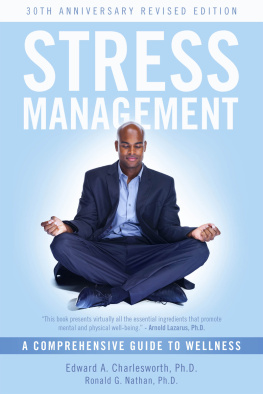
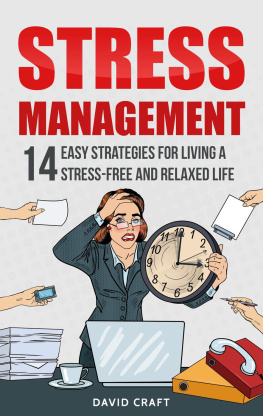

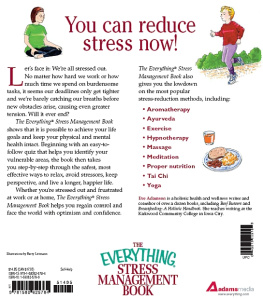
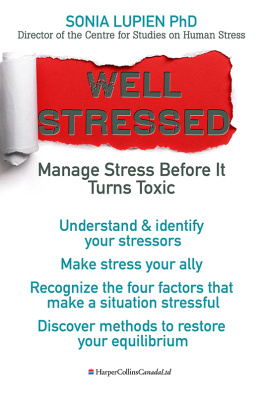
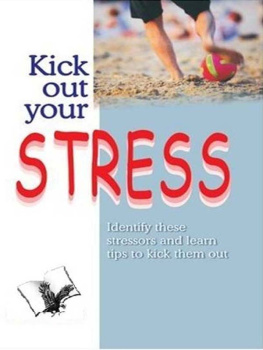
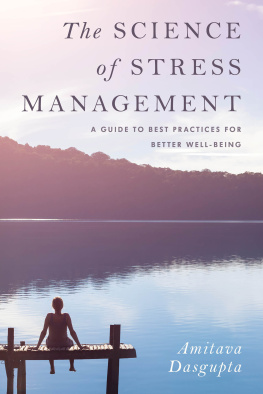
![Elizabeth Anne Scott - 8 keys to stress management : [simple and effective strategies to transform your experience of stress]](/uploads/posts/book/102232/thumbs/elizabeth-anne-scott-8-keys-to-stress-management.jpg)
